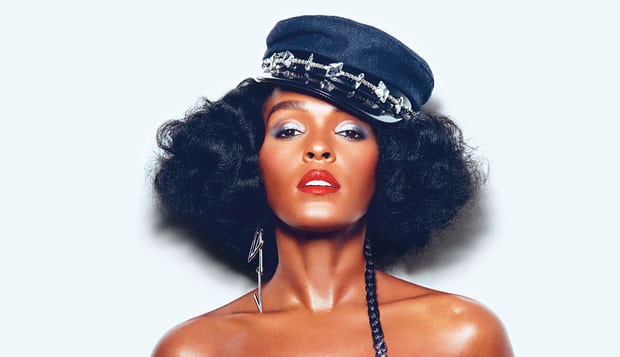At first glance, Dirty Computer looks like business as usual for Janelle Monáe. Like its predecessor, 2013’s The Electric Lady, it’s a concept album with a title that posits its creator as a part-human, part-cyborg figure, and it comes accompanied by a film in which the heroine struggles against a futuristic dystopia. Once more, the influence of Prince hangs over proceedings. On The Electric Lady he was to be found duetting with Monáe and firing off a typically incredible guitar solo on Givin’ ‘Em What They Love, and he was apparently working on Dirty Computer at the time of his death. His exact contributions are unclear, but echoes of his music resonate throughout: from the Let’s Go Crazy-ish beat of closer Americans – as unexpectedly euphoric an excoriation of that country’s current ills as you could wish to hear – to the chord changes in So Afraid, to the Kiss-like jangle of guitar that opens Screwed.
And yet, there are clearly changes afoot on Dirty Computer. The one thing the gushing profiles and op-ed pieces about Monáe never mention is that the singer can’t get a hit: not one of the singles released from The ArchAndroid or The Electric Lady even made the Billboard Hot 100. Dirty Computer takes some decisive steps to try and rectify this state of affairs. The more outré aspects of its predecessor, not least the filmic instrumental suites, are gone. You occasionally wonder if an understandable desire to cross over commercially might not be at the root of the album’s less inspired moments: there’s something commonplace and risk-averse about the pop-R&B backing of Crazy, Classic, Life and I Got the Juice. They’re certainly not bad songs, but they pale next to Dirty Computer’s highlights: Django Jane, on which Monáe unleashes a ferocious rap, skilful and funny enough, as it shifts its focus from racism to sexism (“let the vagina have a monologue”), to suggest she could make a straightforward hip-hop album were she so inclined; the drifting ballad Don’t Judge Me, shimmering with electronic effects that make it sound as if it was recorded under water; the irresistible 80s pop of Take a Byte.
Elsewhere, she reaches out beyond her tight-knit Wondaland collective to the kind of songwriters you pay to get you into the charts. Make Me Feel was co-written by Sweden’s Mattman and Robin and current golden team Justin Tranter and Julia Michaels. The end result is a brilliantly executed, hook-laden and supremely funky Prince homage, a song that seems to have the same undeniable multi-platinum-selling pop power as Uptown Funk or pre-outcry Blurred Lines. You listen to it, then look at its chart placing – No 99 in the US, No 74 over here – and think: what does this woman have to do to impress a mainstream pop audience? Handstands?
The other big difference is that Dirty Computer is supposed to be a “very deep, very personal” album: so personal, Monáe recently claimed, that she spent years wondering whether she could even release it. This would certainly come as a dramatic shift. In a world of oversharing, Monáe has always cut a mysterious figure, so keen to conceal herself behind robotic personae that more than one interviewer has left wondering if her answers weren’t rehearsed. Indeed, it’s hard not to wonder if her failure to connect with a mass audience might be because her desire to work with concepts and characters, rather than unburden herself,
If it is, then you wonder if Dirty Computer will change things. There’s certainly a bit more detail about Monáe in these songs – we learn that she has a liking for magic mushrooms and at some point had an interracial relationship that ended badly; we hear that she’s riven with self-doubt and that her parents were too poor to buy her the latest trainers as a child – but you would never call it the stuff of painful, soul-baring confessional. Like the videos that preceded the album’s release, it drops heavy hints about Monáe’s oft-discussed sexuality – Pynk sounds like a Prince-esque paean to cunnilingus, rebooted as an anthem for female empowerment – while gently rebuffing further inquiries: “Don’t make me spell it out for you.”
There are plenty of reasons why Monáe should be a huge star. She can act, sing, rap, pay homage to her idols without descending into pastiche, and she can write about the kind of hot-button topics that artists currently feel obliged to address regardless of whether they have anything to say about them, with real wit and infectiously righteous anger. But she is as elusive as ever, and her mystery remains intact. Without a true loosening of her poise, her position on the margins of pop could remain intact as well.
This week Alexis also listened to
Paddy Kingsland – The Changes
Unexpected highlight of my Record Store Day trolley-dash: a 1976 Radiophonic soundtrack that’s as eerie as the plot of the futuristic kids’ drama it once accompanied.
Source: https://www.theguardian.com/music/2018/apr/27/janelle-monae-dirty-computer-review-vagina-monologues-from-a-far-off-star























































